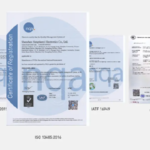Massachusetts, known for its historic sites and vibrant cities, has increasingly become a hub for various forms of gambling. The state is home to several large casinos, including Encore Boston Harbor, MGM Springfield, and Plainridge Park Casino. While these establishments have contributed significantly to the state’s economy, they have also witnessed their fair share of criminal activities. One of the more recent and troubling criminal acts involves a massachusetts man casino check fraud.
In this article, we will delve into the details of this incident, understand the methods used in check fraud, discuss how the legal system responds to such crimes, and explore the broader implications for casino security and the economy of Massachusetts. Additionally, we will examine how similar cases in other parts of the country highlight the ongoing challenges casinos face in curbing fraudulent activities.
The Case of the massachusetts man casino check fraud
In recent months, a Massachusetts man, whose name has not been disclosed to the public due to ongoing investigations, was arrested for engaging in a complex check fraud scheme targeting several casinos in the state. According to sources close to the investigation, the man was able to successfully exploit weaknesses in the casino’s financial systems to issue fraudulent checks for large sums of money. The checks were typically cashed at the casino’s cashier stations, where they were either deposited or used to secure gambling chips. It is alleged that the suspect’s actions led to losses amounting to over $500,000, though the exact figure is still under investigation.
The fraud scheme was carefully orchestrated over several months. Initially, the suspect would forge checks drawn from bank accounts he had somehow gained access to. These checks were made out for large amounts, often several thousand dollars, which he would present at various casinos. Once the check was cashed, the individual would use the funds to gamble at high-stakes tables, where he would make quick bets and, at times, win substantial amounts.
However, it wasn’t long before the massachusetts man casino check fraud systems flagged suspicious activities. The man’s betting patterns and check cashing behavior seemed inconsistent with typical patrons. For example, he would cash multiple checks in a short time, and his gambling activity often didn’t correspond with the amounts of money he was receiving. Casino staff, trained to notice patterns of fraudulent behavior, began to notice the anomaly, and their suspicions were eventually confirmed when they cross-referenced the checks with their banking partners.
The Methodology Behind Check Fraud in Casinos
Check fraud is a serious crime that can take many forms, but the basic premise is the same: it involves the unauthorized use of checks to obtain money or property. In a casino environment, this typically occurs when an individual forges or manipulates checks in order to access funds. The method used in this case, as detailed earlier, involved a combination of forgery, banking knowledge, and the manipulation of casino systems.
One of the most common forms of check fraud in casinos is the use of counterfeit or altered checks. In this case, the suspect allegedly forged checks from accounts with enough balance to pass the initial verification process. Once the check was cleared, the money was either used for gambling or withdrawn. Casinos are particularly vulnerable to such schemes because they deal with large volumes of financial transactions daily. Casinos often rely on complex verification systems, but fraudulent checks can slip through if these systems are not updated or monitored in real-time.
In some cases, fraudsters will use “check kiting” to carry out their activities. This involves writing checks between accounts that have insufficient funds. The goal is to “float” the checks by timing them in such a way that the funds are deposited before the checks clear. This tactic can create a temporary balance that allows the fraudster to withdraw or cash large sums before the check bounces.
Another technique involves using “closed-loop” checks, where the massachusetts man casino check fraud uses a check drawn on a closed or non-existent account to access funds that don’t actually exist. While casinos have checks and balances to prevent this kind of fraud, criminals who are familiar with the system can sometimes evade detection for long enough to carry out multiple transactions.
How Casinos Prevent Check Fraud
Given the substantial amounts of money involved in these fraudulent schemes, casinos have implemented various security measures to detect and prevent such activities. These measures include sophisticated surveillance systems, software that can track suspicious financial transactions, and a team of security professionals trained in fraud detection.
For instance, most casinos now employ check verification systems that cross-check each check presented with a bank’s records. These systems are designed to quickly identify if a check is counterfeit or comes from a closed or flagged account. If a check is cleared but is found to be invalid later, the casino can also track the individual who cashed it using surveillance cameras, player tracking data, and other security tools.
In addition to automated systems, many casinos also employ teams of specialized fraud investigators who are experienced in recognizing red flags associated with check fraud. These investigators will look for unusual patterns, such as multiple checks cashed within a short time, large amounts of money withdrawn in small increments, or high-stakes gambling following check cashing.
Previous article; Kristaps Porzingis injury A Career Shaped by Resilience
Legal Consequences of massachusetts man casino check fraud
Check fraud, particularly in a casino setting, is not only a serious financial crime but also carries severe legal penalties. In Massachusetts, those caught committing check fraud can face both state and federal charges. The state’s criminal code includes specific sections related to check fraud, which can include criminal charges for forgery, uttering, larceny, and obtaining money under false pretenses. Depending on the severity of the offense, the penalties can range from fines and restitution to long prison sentences.
If the fraud scheme involves interstate activities, such as using forged checks from another state or cashing checks at multiple casinos across state lines, federal law enforcement agencies may get involved. Federal charges related to check fraud can lead to harsher penalties, including extended prison terms and larger fines. Federal authorities may also work with casinos and banks to investigate larger-scale fraud rings.
In this particular case, it is expected that the man arrested for check fraud could face a range of charges under massachusetts man casino check fraud state law. The charges may include felony counts of larceny, conspiracy, and forgery, each of which can carry substantial penalties. Additionally, the financial restitution required could be significant, given the magnitude of the fraud.
Broader Implications for Casino Security
The rise of check fraud in casinos highlights a broader issue related to security and the need for continuous improvements in surveillance and fraud detection systems. While modern casinos employ state-of-the-art technology to protect their assets, criminals are often quick to adapt their methods. For example, the use of sophisticated forgeries, online banking, and even insider knowledge to bypass security measures is an ongoing challenge.
Casinos, particularly those located in Massachusetts, are also dealing with the implications of having to balance customer experience with security. While patrons come to casinos to enjoy themselves, large-scale fraud schemes can significantly impact the reputation and financial stability of a casino. Moreover, incidents of fraud can deter other customers from visiting, knowing that such risks exist.
To combat these risks, many casinos are investing heavily in their security departments. Some are implementing machine learning-based systems to detect suspicious behavior in real-time, while others are improving their employee training to ensure that staff can quickly recognize the signs of fraudulent activity. Furthermore, casinos are collaborating with law enforcement to ensure a coordinated response to fraud incidents.
The Economic Impact of massachusetts man casino check fraud
The financial impact of check fraud is not limited to the casinos themselves. Massachusetts, as one of the most prominent gambling hubs in the United States, also faces significant economic consequences from fraud and other illegal activities within its casinos. When fraud occurs, casinos can incur substantial losses, both in terms of direct theft and the cost of implementing enhanced security measures.
Additionally, check fraud can lead to increased regulatory scrutiny and a loss of confidence in the industry. This could result in more stringent regulations and the implementation of more expensive security systems. Casinos may also face lawsuits or fines if they are found to be negligent in preventing fraud.
Moreover, check fraud can affect local communities. Casinos contribute to the economy by providing jobs and generating tax revenue. If fraud becomes widespread, it could harm the profitability of casinos and, by extension, the local economy. Workers in casino hotels, restaurants, entertainment venues, and other sectors may see their hours reduced, while the government may lose out on potential tax revenue.
Conclusion
The case of the massachusetts man casino check fraud serves as a stark reminder of the vulnerabilities present in the gambling industry. While casinos invest heavily in security, fraudsters are constantly finding new ways to exploit the system. The consequences of such fraud are far-reaching, affecting not only the casinos but also the local economy and the broader gambling community.
The legal penalties for check fraud are severe, with offenders facing potential prison sentences and substantial fines. However, the true cost of such crimes extends beyond the legal system. Casinos must continue to adapt and refine their security systems, while law enforcement agencies need to remain vigilant to prevent these kinds of fraudulent activities from proliferating.
As technology continues to advance and the gambling industry grows, it is likely that more sophisticated fraud schemes will emerge. In response, casinos will need to continue to innovate, implementing even more advanced fraud detection systems to stay one step ahead of criminals. Only time will tell how effective these efforts will be in preventing future cases of check fraud in Massachusetts and across the nation.










